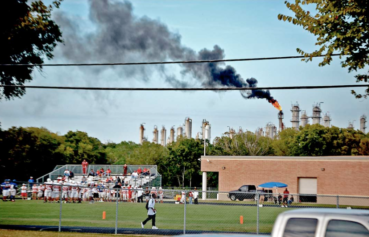Heat waves seem to be an inevitable part of an American summer, but the temperatures we’ve come to expect may be a part of a global trend towards a more extreme climate. So far 2012 has been one of the driest years in recent memory, with a noticeably calm winter giving way to record breaking heat in June. Studies by the federal government’s National Center for Atmospheric Research have unearthed the cause of some of these trends.
Kevin Trenberth, a senior scientist for the center, spoke with PBS NewsHour about some of the specific reasons behind the high tempertatures and the dryness of the American climate.
“In the mountains, there’s no snow left,” he said. “Normally, you don’t see any snow left until late August, if then. And by early June, there was no snow left. Snow is a reflector. When it melts, it provides water. It cools the atmosphere. And water is the great air conditioner.”
“The absence of all of the water and the snow in the Southwest has meant all of the heat from the sun is going into raising temperatures,” he conitnued. “This is the building of the heat wave.”
He said the heat then begins to move eastward, picking up moisture out of the Gulf.
“The humidity goes up to enormous amounts because the oceans have a strong memory of the climate change being warmer and moister over the oceans,” he continued. “And that empowers all of the weather systems, such as the ones that came through, the thunderstorm clusters that came through and did all of the damage [Sunday].”
Trenberth went on to mention that record temperature highs are being posted at a rate of 10-to-1 compared to record lows in 2012. He suggests that it is not simply the fact that temperatures are being broken, but the high ratio in favor of higher temperatures that point towards a climate change. Some might suggest that the records are clear indicators of a global warming effect, and scientists like Trenberth continue to warn against the impact of human influence on the climate.


